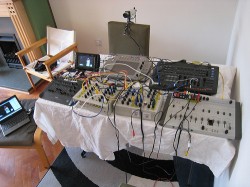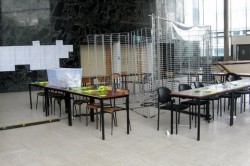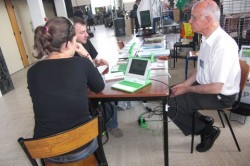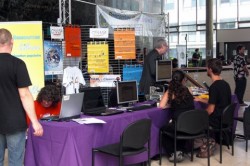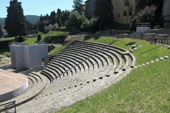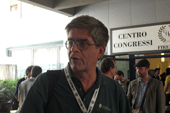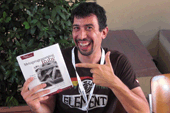 Drinks have arrived, hopefully the books have been delivered, what else do it need to do. Oh yeh, prey for good weather tomorrow for the Geeknick at OggCamp. We do not want rain… Sad, Waitrose could not supply quantities of Ubuntu Cola – I have got only 19 cans even though I put the order through 2 weeks ago – so we will have to drink normal stuff.
Drinks have arrived, hopefully the books have been delivered, what else do it need to do. Oh yeh, prey for good weather tomorrow for the Geeknick at OggCamp. We do not want rain… Sad, Waitrose could not supply quantities of Ubuntu Cola – I have got only 19 cans even though I put the order through 2 weeks ago – so we will have to drink normal stuff.
According to the BBC weather forecast –
- Friday: white cloud – clouds are definitely here but a rather “dark white”.
- Saturday: White cloud again – I hope they stay white!
Bring your umbrella just in case!
I always forget that Ubuntu means “I am because we are” – remember these words and we shall have a great weekend in front of us. Oops! sorry O’Reilly will not be there on Sunday as it will be time to go to
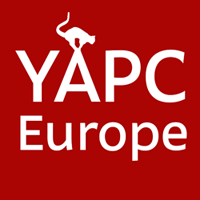 Riga for YAPC Europe – already packed, passport, tickets, my idiot guide to Riga drawn by my friend Diana. Diana is a native of Riga so she knows all the best restaurants from very posh like Vincents, near Alberta Street, to Lido, a chain of typical Latvian restaurants – not to forget the Rozengrals, an authentic mediaval place.
Riga for YAPC Europe – already packed, passport, tickets, my idiot guide to Riga drawn by my friend Diana. Diana is a native of Riga so she knows all the best restaurants from very posh like Vincents, near Alberta Street, to Lido, a chain of typical Latvian restaurants – not to forget the Rozengrals, an authentic mediaval place.
- the House of the Blackheads – the old Guildhall with a statue of the knight Roland in front of it
Unlike most “other” HTML5 events that are geared towards web design, HTML5 Live is designed for enterprise web application developers and architects. The HTML5 Live program dives into areas of Browser Support, Architecture, Communication, Mobile and Web Applications. The speakers (Bruce Lawson, John Fallows, Jonas Jacobi, Christian Heilmann, Ido Green, Jake Archibald) are industry thought leaders from companies driving the HTML5 standard along with practitioners deploying real-world case studies.
The organisers are kindly offering a £25.00 discount to the friends of josetteorama. To benefit from this discount please enter the promotion code ” oreilly ” upon registration. Register now!
When there, please come and see me, I will be behind the O’Reilly table full of the latest HTML5 and other related topics titles. The green animal books will be there, available at 40% discount on the day.
 Now in their fifth year, The Progressive .NET Tutorials are scheduled for September 5-7 and Ian Cooper has put together a great programme, working closely with our community! Some exciting new names will feature this year, including Google’s Jon Skeet on Async Methods in C#5 and the great Ian Robinson* of Neo Technology on RESTful Web Service Development in .NET.
Now in their fifth year, The Progressive .NET Tutorials are scheduled for September 5-7 and Ian Cooper has put together a great programme, working closely with our community! Some exciting new names will feature this year, including Google’s Jon Skeet on Async Methods in C#5 and the great Ian Robinson* of Neo Technology on RESTful Web Service Development in .NET.
We’ll also delighted to feature tutorials by some returning experts this year, including Christian Hassa and Gaspar Nagy on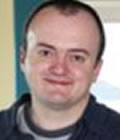 Defining and Automating Acceptance Criteria with Gherkin and Specflow, and Ian Cooper and Seb Lambla are preparing an in-depth tutorial on patterns and practices of package management.
Defining and Automating Acceptance Criteria with Gherkin and Specflow, and Ian Cooper and Seb Lambla are preparing an in-depth tutorial on patterns and practices of package management.
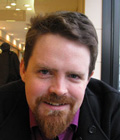 Given the huge interest in JavaScript and User Experience this year, it’s no surprise Dylan Beattie kicks off Monday afternoon, with a tutorial titled Front-end Tips for Back-end Devs covering the importance of dependency management, loose coupling and abstractions when writing the UI for our web applications, while Damjan Vujnovic is dedicating a hands-on workshop to TDD in JavaScript, on Tuesday morning.
Given the huge interest in JavaScript and User Experience this year, it’s no surprise Dylan Beattie kicks off Monday afternoon, with a tutorial titled Front-end Tips for Back-end Devs covering the importance of dependency management, loose coupling and abstractions when writing the UI for our web applications, while Damjan Vujnovic is dedicating a hands-on workshop to TDD in JavaScript, on Tuesday morning.
As always, joining the Progressive .NET Tutorials will mean some heavy exposure on Software Craftsmanship, CI and Testing. In addition to some of the BDD related topics above,Simon Brown will run his Load Testing, performance and scalability workshop, while Paul Stack shares his skills and experience on how to move from CI to continuous delivery.
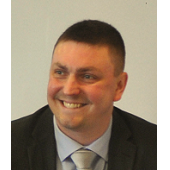 The Progressive .NET Tutorials wouldn’t be complete without featuring some cool web app frameworks too. This year, Adam Granicz will proudly show of his WebSharper Web Application Framework for F#, while Simple.Data creator Mark Rendle and Nancy author Steven Robbins will give a demo-heavy tutorial.
The Progressive .NET Tutorials wouldn’t be complete without featuring some cool web app frameworks too. This year, Adam Granicz will proudly show of his WebSharper Web Application Framework for F#, while Simple.Data creator Mark Rendle and Nancy author Steven Robbins will give a demo-heavy tutorial.
As in other years, we’ve made sure we’ll have an intimate event with lots of room for discussion and interaction with the Progressive.NET Team and other community members.
Book here 
*Ian Robinson is co-author of REST in Practice, published by O’Reilly Media. 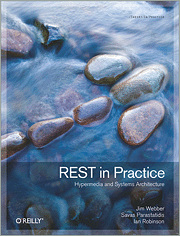
 It’s summer and the European Perl community’s thoughts are all about the upcoming YAPC::Europe conference. In about three weeks time we’ll all be jumping onto planes to Riga for three days of great Perl talks. The conference runs from 15th – 17th August. Here are some of the highlights that I’m looking forward to.
It’s summer and the European Perl community’s thoughts are all about the upcoming YAPC::Europe conference. In about three weeks time we’ll all be jumping onto planes to Riga for three days of great Perl talks. The conference runs from 15th – 17th August. Here are some of the highlights that I’m looking forward to.
 Larry Wall is the man who created Perl and he is currently driving the project to design and implement Perl 6. His “State of the Onion” keynotes are always interesting and I’m sure that this year’s will be no exception. He’s speaking at the start of the first day.
Larry Wall is the man who created Perl and he is currently driving the project to design and implement Perl 6. His “State of the Onion” keynotes are always interesting and I’m sure that this year’s will be no exception. He’s speaking at the start of the first day.
 The same slot on the second day goes to Damian Conway. His talks are just as interesting as Larry’s but often more than a little scarier as he bends Perl to his will in ways that it really wasn’t designed to bend. In this one he’ll be redeveloping some of his CPAN modules in Perl 6. At the other end of the conference., the closing talk is Matt Trout’s “State of the Velociraptor” talk. This is becoming a Perl conference tradition where Matt sums up what has happened during the last year in Perl.
The same slot on the second day goes to Damian Conway. His talks are just as interesting as Larry’s but often more than a little scarier as he bends Perl to his will in ways that it really wasn’t designed to bend. In this one he’ll be redeveloping some of his CPAN modules in Perl 6. At the other end of the conference., the closing talk is Matt Trout’s “State of the Velociraptor” talk. This is becoming a Perl conference tradition where Matt sums up what has happened during the last year in Perl.
Immediately before Larry’s keynote comes the biggest announcement of the conference, which is the announcement of next year’s venue. This year’s applications came from Sofia and Frankfurt, so next summer we’ll either be in Bulgaria or Germany.
 The organisers have had enough high quality proposals that they have been able to fill four tracks for three days – and there’s an extra fifth track on the first day. Inevitably this leads to clashes where two interesting talks at the same time. For example, I’m currently trying to work out whether to see Zefram explaining “Why Time is Difficult” or Gabor Szabo talking about “Writing Plugins for Padre”. The worst kind of clash is one where you have no choice at all as you’re giving one of the talks. I’d probably go and see Job van Achterberg’s “Introduction to Dancer” on Wednesday morning if I wasn’t giving my own talk on “Perl Training” at the same time.
The organisers have had enough high quality proposals that they have been able to fill four tracks for three days – and there’s an extra fifth track on the first day. Inevitably this leads to clashes where two interesting talks at the same time. For example, I’m currently trying to work out whether to see Zefram explaining “Why Time is Difficult” or Gabor Szabo talking about “Writing Plugins for Padre”. The worst kind of clash is one where you have no choice at all as you’re giving one of the talks. I’d probably go and see Job van Achterberg’s “Introduction to Dancer” on Wednesday morning if I wasn’t giving my own talk on “Perl Training” at the same time.
There are many talks that I’m looking forward to seeing. Here are just a few of them. Mallory van Achterberg’s talk on HTML5 probably won’t  mention Perl, but it’s a subject I want to know more about. Anton Berezin is talking about “Replacing a Relational DB with Redis” and that’s another area that I want to investigate further. I use Git a lot, so Philippe Bruhat’s talk on “Controlling Git from Perl” sounds interesting as does his follow-up on the next day “Managing CPAN Installations with Git”. I’ve done a bit of work with Plack but it’s always good to get other people’s perspectives so I want to see Leo Lapworth’s “Plack Basics” – but that would mean missing Tara Andrews’ talk on the “Analysis of Medieval Manuscript Traditions with Perl”. Jesse Vincent’s “Perl 5.16 and Beyond” will be essential for anyone interested in the future Perl 5 development and Ingy döt Net’s talk on “ActiveState, Perl and the Cloud” is very timely given the current interest in hosting Perl applications in the cloud.
mention Perl, but it’s a subject I want to know more about. Anton Berezin is talking about “Replacing a Relational DB with Redis” and that’s another area that I want to investigate further. I use Git a lot, so Philippe Bruhat’s talk on “Controlling Git from Perl” sounds interesting as does his follow-up on the next day “Managing CPAN Installations with Git”. I’ve done a bit of work with Plack but it’s always good to get other people’s perspectives so I want to see Leo Lapworth’s “Plack Basics” – but that would mean missing Tara Andrews’ talk on the “Analysis of Medieval Manuscript Traditions with Perl”. Jesse Vincent’s “Perl 5.16 and Beyond” will be essential for anyone interested in the future Perl 5 development and Ingy döt Net’s talk on “ActiveState, Perl and the Cloud” is very timely given the current interest in hosting Perl applications in the cloud.
There are also a few less technical talks that I’ll be attending. On Tuesday, Karen Pauley will be giving an overview of what The Perl Foundation has done in the last year and what its future plans are. And Mark Keating has two interesting-sounding talks “Adventures in Marketing” and “I <3 My Community”. This year there will be three sessions of Lightning Talks, one each day. These give new speakers a “no pressure” way to ease their way into speaking at a conference. You’ll also find more experienced speakers taking the opportunity to let their hair down a little.
On top of all this there are training courses run on the days both before and after the conference (at extra cost) and a number of evening events largely based around eating and drinking. It’s a great way to keep yourself up to date with what it going on in the world of Perl.
I hope to see you in Riga.

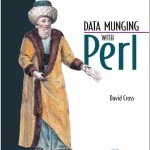 Dave Cross is the owner of Magnum Solutions Ltd, an Open Source consultancy company based in London. In 1998 he started london.pm which has grown to be one of the largest Perl Mongers groups in the world. He nominally led the group until September 2001. Between August 2002 and June 2006 he was the Perl Mongers User Groups Co-ordinator for the Perl Foundation. Dave is a regular speaker at Perl and Open Source conferences and is often invited to present tutorials alongside the main conference. He is the author of “Data Munging with Perl” (Manning, 2001) and a co-author of “Perl Template Toolkit” (O’Reilly, 2003). You can follow him on Twitter at @davorg.
Dave Cross is the owner of Magnum Solutions Ltd, an Open Source consultancy company based in London. In 1998 he started london.pm which has grown to be one of the largest Perl Mongers groups in the world. He nominally led the group until September 2001. Between August 2002 and June 2006 he was the Perl Mongers User Groups Co-ordinator for the Perl Foundation. Dave is a regular speaker at Perl and Open Source conferences and is often invited to present tutorials alongside the main conference. He is the author of “Data Munging with Perl” (Manning, 2001) and a co-author of “Perl Template Toolkit” (O’Reilly, 2003). You can follow him on Twitter at @davorg.
![]() For the last three years I met with Iain Sharp, at London Dorkbot and of course at Maker Faire UK. His stand always attracted a lot of people, so I decided to find out more about the man behind these wacky creations.
For the last three years I met with Iain Sharp, at London Dorkbot and of course at Maker Faire UK. His stand always attracted a lot of people, so I decided to find out more about the man behind these wacky creations.
When hearing about Lunar Lander, Three Blind Mice, Cyclepong and many more, your name comes to mind. How did it all start? What is your background?
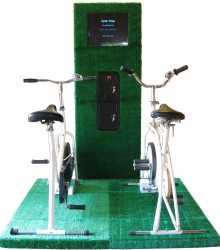 I loved making things as a child and studied electronics at university but, like a lot of people, I ended up doing the kind of engineering job that consists of writing PowerPoint charts. At a certain point, I realized that what I was paid to do had very little connection to what made me passionate about engineering, so I decided to find my way back in to making and doing stuff. My decision was well timed and coincided with growing interest in DIY technology in the wider community. I was lucky to connect with Dorkbot London who have provided constant inspiration and encouragement for my projects.
I loved making things as a child and studied electronics at university but, like a lot of people, I ended up doing the kind of engineering job that consists of writing PowerPoint charts. At a certain point, I realized that what I was paid to do had very little connection to what made me passionate about engineering, so I decided to find my way back in to making and doing stuff. My decision was well timed and coincided with growing interest in DIY technology in the wider community. I was lucky to connect with Dorkbot London who have provided constant inspiration and encouragement for my projects.
Initially the projects were just done for my own interests and to show off a bit to my fellow geeks. As I became known in the technology community it lead to new opportunities to do work that was targeted at specific events and locations. One of the most enjoyable aspects of the site was getting to know Tim Hunkin through meeting his sister at Dorkbot and building the Cyclepong and Lunar Lander arcade machines that were located on Southwold Pier.
Who is behind Lushproject.com? Are you on your own or are you working with a team?
Lushprojects.com is my work but it draws heavily from inspiration provided by others. I love the complete geek-out which is Mike’s Electric Stuff and wanted to create something with a similar variety of projects to browse. Many of the projects have been done because I knew organizers of particular events and was able to persuade them to include some of my work.
What drives you to create these fun projects?
Because it’s better than sitting in front of the TV. Actually it’s hard to say. A lot of the time I get a “wouldn’t it be good if…” idea stuck in my head and the only way to get peace is to actually build the thing. Once you start building projects, the satisfaction of completing them becomes addictive. The project that was hardest to start but ended up being one of the most satisfying was Cyclepong. When I was out buying the old exercise bikes at a car boot sale the main thought in my head was, “this is crazy, are you ever actually going to finish this thing and if so what will you do with it?”.
Some of your projects involve music or at least sound, are you a musician?
My piano teacher had a nervous breakdown when I was about 6 and that ended my playing career, so not really. I do have an interest in music, and a lot of my friends are properly involved in music making. One interesting experience was helping a deaf lady build a simple electronic organ. Although she couldn’t hear the sound, she could feel the vibration of the speaker. It was great.
None of it has a permanent home right now but I expect to be doing some visuals based on my circuit-bent video equipment at the Festinho festival later in the summer. I am also taking circuit bent gear and Vibrati Punk Console kits to the Brighton Mini Maker Faire on Saturday 3rd September.
Do you make these projects for fun only or are they commissioned?
Mostly they are done on my initiative, but for things like the teaching workshops I normally work with an organizer to deliver something for a particular event. The biggest commission was building a second Cyclepong machine for Emma Freud after she fell in love with the original on Southwold Pier.
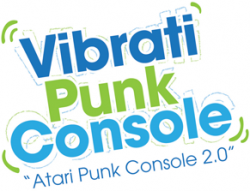 Can you describe your latest project – the Vibrati Punk Console Electronics Kits which is endorsed by Forrest M. Mimms III? – great endorsement! What gave you the inspiration to creating this kit?
Can you describe your latest project – the Vibrati Punk Console Electronics Kits which is endorsed by Forrest M. Mimms III? – great endorsement! What gave you the inspiration to creating this kit?
The new generation of hobbyist-oriented startups like Adafruit and Oomlout are really good at encouraging people to take a punk attitude to commercially producing electronic kits. I wanted to try the “Here’s three chords – Now form a band” approach and see if I could get a kit in production that people would like and could use musically, or to learn to build electronics. A conversation with Aaron from Oomlout at Makerfaire UK this Spring inspired me enough to get out there and do it. Having run various courses for electronics novices, I felt I had an understanding of what explanations would help people learn and how to structure and pace material for learners. A lot of effort went in to designing the kit to be simple to build and in to creating well illustrated instructions that I hope anyone can follow.
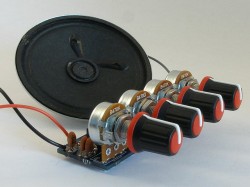 I chose to build from the Atari Punk Console because I had used it at one of my teaching workshops and I knew it was a fun design that made interesting sounds from a simple circuit. For those not familiar, the Atari Punk Console uses two interacting 555 timer chips to create sounds very much like the early 80s video games. To make it a bit more exciting I extended the original circuit with an extra oscillator which makes the range of sounds generated a lot richer. The nice encouragement from Forrest M. Mimms III was something that really amazed me. I put the project on the web and a couple of days later he contacted me. I was stunned but very happy.
I chose to build from the Atari Punk Console because I had used it at one of my teaching workshops and I knew it was a fun design that made interesting sounds from a simple circuit. For those not familiar, the Atari Punk Console uses two interacting 555 timer chips to create sounds very much like the early 80s video games. To make it a bit more exciting I extended the original circuit with an extra oscillator which makes the range of sounds generated a lot richer. The nice encouragement from Forrest M. Mimms III was something that really amazed me. I put the project on the web and a couple of days later he contacted me. I was stunned but very happy.
Do you buy the components and then build the kit or do you get a third party to put it together?
My day job means that I am not always available to build and dispatch kits so I decided I needed to work with someone who could deal with the kit building. Also, I needed to control the up-front costs for this project so I was also looking for options to avoid having to build a lot of initial stock. I spoke to various people about doing a drop-shipping service and ended up working with BitsBox who run an independent web-based electronics shop. They have been extremely helpful. The initial circuit boards were produced by the DorkbotPDX PCB service who are also great.
I notice that the kit is now for sale so who are the buyers? What do they do with it? Have you got some finished samples of their work?
The kit has been on sale about 4 weeks and I am pleased with the interest generated so far. I didn’t really have much of a publicity plan when I started which amused the salesmen at work: “typical engineer, build something and then worry about how to sell it”. The first kits were built at Nottingham Hackspace which gave an opportunity to talk to people and see how they got on with it. One of the first builders was only 12 years old and he completed the kit fine with a bit of help from dad. That was very good.
A friend who runs a small business told me that “you know all your first customers by name” and that proves to be very true. A lot of the initial buyers have sent me feedback. There is at least one nice blog write-up in Worldofnondo and another early builder has also written a review that we hope will be published in a well known music magazine. Most of the initial buyers were people looking for a kit that they could use to get themselves or their children in to building electronics. A few have also gone to musicians who want a novel source of sounds for live performance or sampling. I hope we’ll start to get more audio samples in the next few weeks.
How do I get hold of a kit?
Kits can be ordered online from lushprojects.com/vpc or contact me via lushprojects.com/contact if you are interested in a group order or UK-based building workshop.
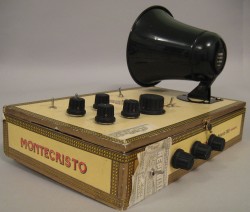 What do your customers have that I do not have? If I had a kit, I strongly believe that I would be able to put it together but then I am seriously lacking of imagination – what do I do with it?
What do your customers have that I do not have? If I had a kit, I strongly believe that I would be able to put it together but then I am seriously lacking of imagination – what do I do with it?
I guess you have to ask the users! One thing I’ve learnt from working with musicians is that any kind of unusual sound is something that triggers their imagination. For myself, I like to build things that look interesting and excite people’s curiosity. The kit really works well as something that can be packaged in fun ways like the Honkatron.
The Vibrati Punk Console circuit is very open to modifications and enhancements and I hope people will play around and try different things out. For example you could try replacing some of the variable resistors with pencil lines and metal contacts or optical sensors to provide different ways to play the instrument. I hope to add some suggested modifications to the web site.
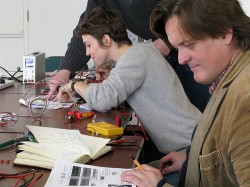 According to your website you give courses – Electronics for Artists and Electronics for Absolute Beginners. What are the prerequisites of the courses? I believe that one does not need any knowledge beforehand for the Electronics for Absolute Beginners. Don’t they need a lot of imagination and creativity?
According to your website you give courses – Electronics for Artists and Electronics for Absolute Beginners. What are the prerequisites of the courses? I believe that one does not need any knowledge beforehand for the Electronics for Absolute Beginners. Don’t they need a lot of imagination and creativity?
Both courses were intended for people coming in with no past experience of electronics. They both provide a general practical introduction to electronics. The “For Artists” course adds a day on the Arudino controller which allows people to start to develop interactive installations. One of the things I try to do with both courses is to encourage people to play around and try different things. We had a great time doing Absolute Beginners at MzTek, when the group decided to start testing the electrical conductivity of their packed lunch items and building pencil-line organs that were also lovely drawings.
What are the conditions before you agree to give a course?
Enough notice, reasonable location and an interesting group of people. Not much more than that!
What is your next project – can you talk about it or would you prefer to reveal it all when ready?
Normally I don’t like to talk too much about what I am working on, but there is one long-term project that I do discuss. The working title is “post modern fortune teller” and the aim is to bring some of the magic of the 1950s and 1960s visions of the future to the present day. Suggestions from readers on what sort of technology driven fortune they would like to have are welcome via lushprojects.com/contact.
What would your recommendation be for somebody who would like to emulate what you do?
There are lots of great resources to learn technical skills. Take those as a beginning and start to play with the ideas by changing existing designs to do new things. Have fun and along the way you’ll also find you’ve learnt a lot. Find a local community to share ideas with.
Is Lushproject.com a full time occupation or do you still have a 9-5 job?
I still have a “proper” job. I don’t see Lushprojects providing a living wage soon. What I would say is that doing Lushprojects has encouraged me to think more creatively about my day job and given me a much broader range of personal skills to draw-on.
That’s all for now!
Thank you Iain – hope to see you at the Brighton Mini Maker Faire.
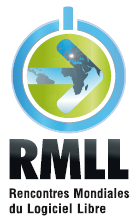 As described in my first post, after the first panic at RMLL, everything went like clockwork. I am amazed how well the conference went – lots of talks, lots of people and WIFI worked throughout without any hiccups. That is a first, as you very well know – a meeting of geeks with all kinds of gadgets is very difficult to cater for. Not only did the conference run well but the atmosphere was extremely friendly and of course it happened in a very beautiful town – Strasbourg which has a large university only 15 minutes walk from the town centre with its beautiful old houses and of course the cathedral… but I did not see any storks – sad.
As described in my first post, after the first panic at RMLL, everything went like clockwork. I am amazed how well the conference went – lots of talks, lots of people and WIFI worked throughout without any hiccups. That is a first, as you very well know – a meeting of geeks with all kinds of gadgets is very difficult to cater for. Not only did the conference run well but the atmosphere was extremely friendly and of course it happened in a very beautiful town – Strasbourg which has a large university only 15 minutes walk from the town centre with its beautiful old houses and of course the cathedral… but I did not see any storks – sad.
My table was set in the “Village des Associations”. Over 60 stands represented most of the User Groups in France – from Debian to Perl, to Ruby but also with “a computer per child” stand and much more. The stand representatives were extremely friendly and very informal.
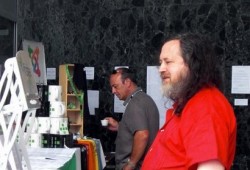 As previously mentioned, Richard Stallman made an appearance at the Village.
As previously mentioned, Richard Stallman made an appearance at the Village.
I also met some very interesting people – I first met Bjarni Runar Einarsson founder of PageKite at Codebits last year. PageKite brings your localhost servers on-line – PageKite is the software that gives your localhost servers names and makes them globally visible. It works with any computer and any Internet connection. It’s so easy you’ll never want to think about routers, IP addresses or other technicalities again. It’s open source, too!
My main contact with the organization team is Remy Sabatier of Diskcard.fr. Apart from creating a great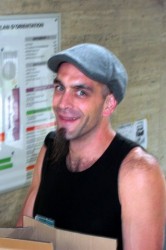 conference, Remy will always be the man who keeps his credit cards or other important pieces of paper in his socks. When not organizing conferences or stuffing his socks, Remy founded Diskcard.fr, a data recovering company mainly for individuals who are put off by the cost and attitude of large companies. What I find excellent is the pricing method -I have never thought it was possible. First you send your disk, pc or whatever to Remy who assess the problem and then send you the bio etc. You then decide if you want the job done and how much you would like to pay. It gives you the opportunity to judge the value of your data as well as recognizing the value of the job to be done. All this of course is under the free software movement.
conference, Remy will always be the man who keeps his credit cards or other important pieces of paper in his socks. When not organizing conferences or stuffing his socks, Remy founded Diskcard.fr, a data recovering company mainly for individuals who are put off by the cost and attitude of large companies. What I find excellent is the pricing method -I have never thought it was possible. First you send your disk, pc or whatever to Remy who assess the problem and then send you the bio etc. You then decide if you want the job done and how much you would like to pay. It gives you the opportunity to judge the value of your data as well as recognizing the value of the job to be done. All this of course is under the free software movement.
I also met a representative of the Maison des savoirs of Kinshasa. La maison des savoirs is organized by the International Organization of Francophonie (OIF) – This project aims to meet the needs of disadvantaged youth and provides multi-service and multi-media access to knowledge in an educational and cultural perspective. Hopefully I will have more to say in the not too distant future.
RMLL would not be complete without the web radio. All day long we get interviews, music, snippets of information – podcasts are available.
What is RMLL? Allegedly les rencontres mondiales du logiciel libre – I think les rencontres francophones du logiciel libre would be more truthful. It has lots of different tracks treating a variety of topics including –
- Health, accessbility and handicap
- Libre cultures and arts
- Law
- Communities
- Local authorities, administration and public policies
- Sciences, research, education and popular education
- Corporate, business and FLOSS
and of course
- System Administration
- Development
- Embedded systems and open hardware
- Operating systems
- Security
- Internet
Day 1:
it is 6.30 am, I ran to the restaurant for a quick cup of coffee and then off to the university of Strasbourg for setting up my table at rmll 11. It does not look too good – the cleaner had to open the door. I can see lots and lots of empty tables with 2 empty plastic bags on top (I am sure I will understand the meaning of the plastic bag sooner or later) and a named label – no O’Reilly table yet – where am I supposed to be? The nightmare is starting – no tables, no boxes of books. Where is everybody? For once I have got plenty of time to write a post but nothing to write about.
10 am – panic over, the stand is ready. Books are selling. The sun is out – all is well. If only I could open the window. Never mind, the welcome is great.
Richard Stallman made a visit to the fsfe stand, opposite the O’Reilly table but he did not come to see me. He can’t have seen me ….
Will post some photos when I learnt how to use my iPad. It may take a while!
22nd September 2011, London
I thought I should send you a gentle reminder before you go on holiday!
Using PF, the OpenBSD packet filter? We got the course for you.
 The tutorial provides updates on the new PF syntax and features introduced in OpenBSD 4.7 (with samples presented in the old and new syntax where appropriate), with newer updates and reviews of relevant new features in the upcoming OpenBSD 5.0 release.
The tutorial provides updates on the new PF syntax and features introduced in OpenBSD 4.7 (with samples presented in the old and new syntax where appropriate), with newer updates and reviews of relevant new features in the upcoming OpenBSD 5.0 release.
 It goes from the basics to advanced usage of the latest versions of PF, including traffic shaping using altq, and the supporting features for higher level services such as trapping spam via greylisting and http filtering, SSL proxying, and load balancing. PFs simplicity and ease allows those new to PF to understand it quickly, while refreshing the best practices in filtering for those who have used PF for years.
It goes from the basics to advanced usage of the latest versions of PF, including traffic shaping using altq, and the supporting features for higher level services such as trapping spam via greylisting and http filtering, SSL proxying, and load balancing. PFs simplicity and ease allows those new to PF to understand it quickly, while refreshing the best practices in filtering for those who have used PF for years.
Interested? Book now as the places are limited and going fast and by the way it is still time to get the Early-Bird rates. Let your friends know!
Book now: online or booking PDF.
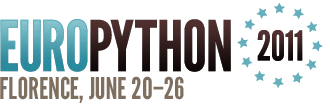 Over 600 Python fans met in Florence on a gorgeous week of June. EuroPython has moved out of Birmingham for the beautiful Florence – and beautiful, Florence is just that.
Over 600 Python fans met in Florence on a gorgeous week of June. EuroPython has moved out of Birmingham for the beautiful Florence – and beautiful, Florence is just that.
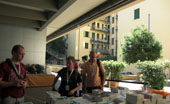 When I left Gatwick, it was bleak – cold, rainy and I felt very miserable – our summer seems to have ended weeks ago. Here in Florence, the sky is blue, the temperature is well in the thirties and there is a nice breeze which makes it tolerable. I am experiencing my first conference booth in a kind of half covered courtyard – so al fresco, just missing the Pims. I am sure you did not want me to talk about the wonderful weather but about EuroPython.
When I left Gatwick, it was bleak – cold, rainy and I felt very miserable – our summer seems to have ended weeks ago. Here in Florence, the sky is blue, the temperature is well in the thirties and there is a nice breeze which makes it tolerable. I am experiencing my first conference booth in a kind of half covered courtyard – so al fresco, just missing the Pims. I am sure you did not want me to talk about the wonderful weather but about EuroPython.
I met some old friends or new friends –
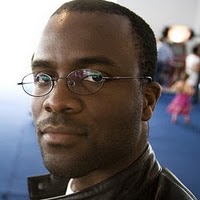 Adewale Oshineye, Developer Advocate at Google but also programmer, writer and photographer and author of Apprenticeship Patterns. Unfortunately Ade has been rather busy and did not have time for a good chat instead he gave an impromptu talk on machine learning with Andrew Dalke on Thursday. We made up time later on during the week.
Adewale Oshineye, Developer Advocate at Google but also programmer, writer and photographer and author of Apprenticeship Patterns. Unfortunately Ade has been rather busy and did not have time for a good chat instead he gave an impromptu talk on machine learning with Andrew Dalke on Thursday. We made up time later on during the week.
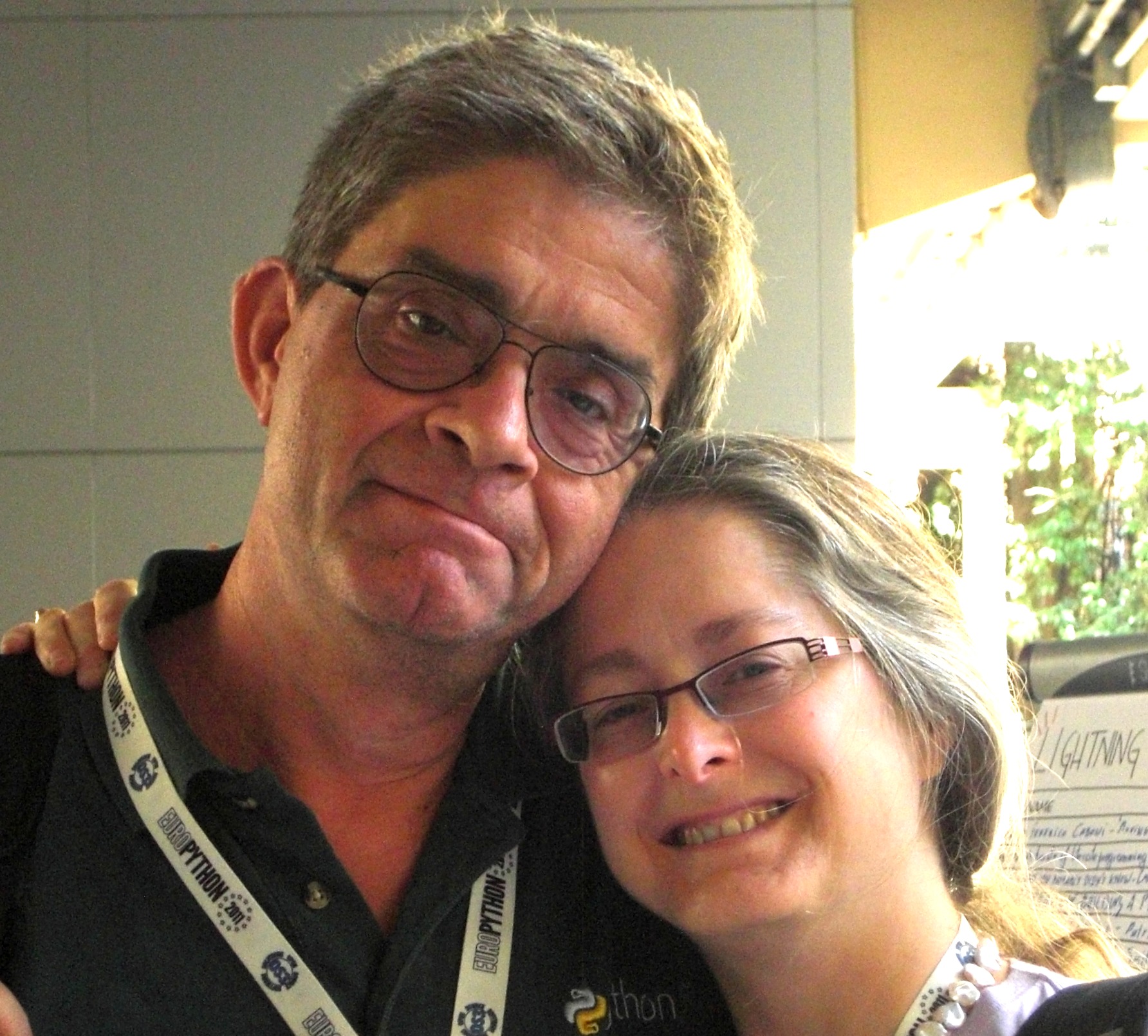 Alex Martelli and Anna Martelli Ravenscroft: the “Python Couple”, two PSF members who met through Python, fell in love, married, and many years later are still deliriously happy with each other AND with Python (O’Reilly’s “Python Cookbook” second edition is special because these two worked on it together: they tell me that to have a love affair survive the strain of writing a book together is the best proof that the relationship is destined to endure and thrive throughout life’s own challenges over the years – you and your spouse should give it a try!) Alex is also the author of Python in a Nutshell, second edition.
Alex Martelli and Anna Martelli Ravenscroft: the “Python Couple”, two PSF members who met through Python, fell in love, married, and many years later are still deliriously happy with each other AND with Python (O’Reilly’s “Python Cookbook” second edition is special because these two worked on it together: they tell me that to have a love affair survive the strain of writing a book together is the best proof that the relationship is destined to endure and thrive throughout life’s own challenges over the years – you and your spouse should give it a try!) Alex is also the author of Python in a Nutshell, second edition.
- Raymond Hettinger: few know that this amazing conference speaker and Python core contributor started his career as a CPA – so much for
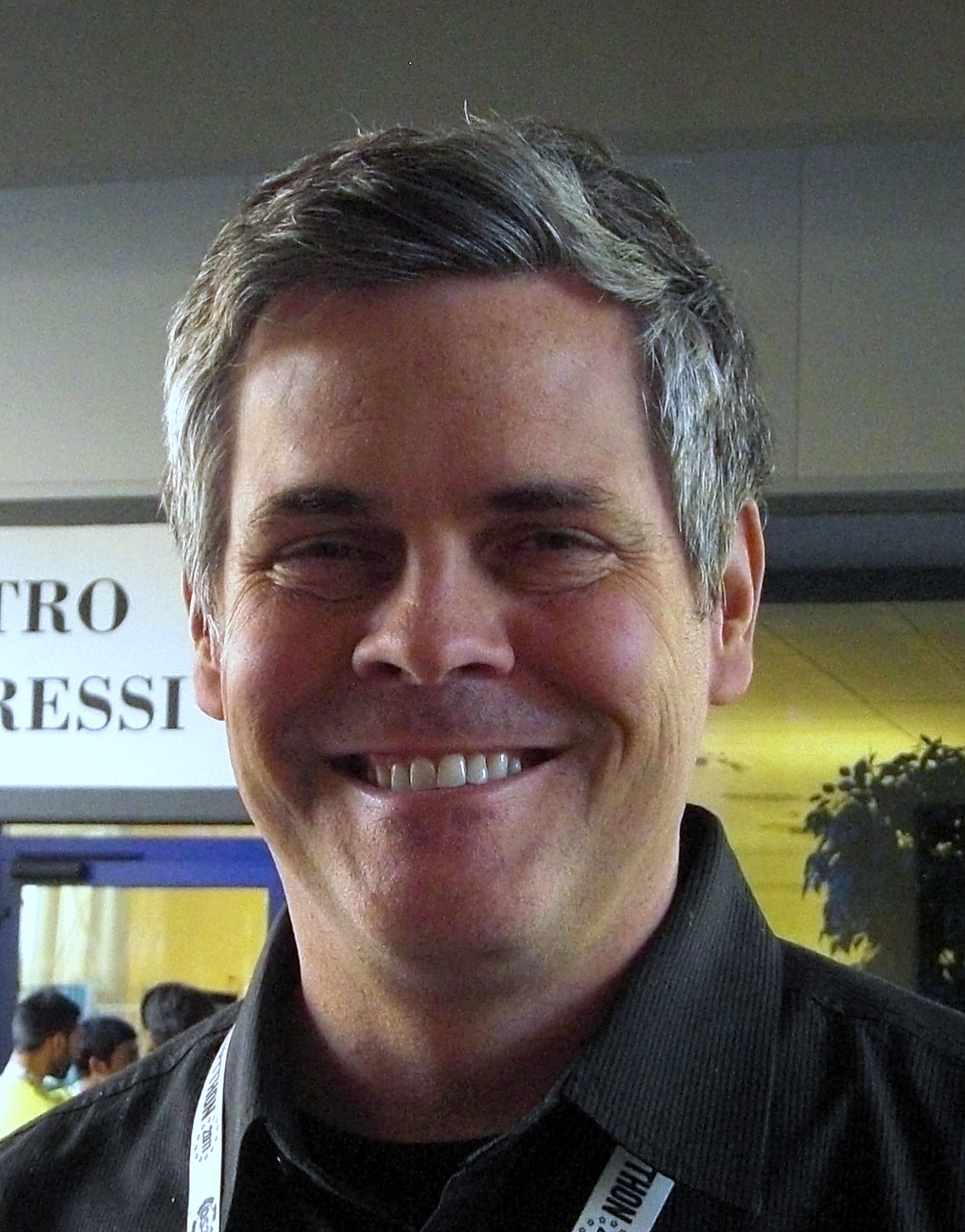 the stereotype that accountants are boring people, since Raymond’s charm clearly gives the lie to this old idea!
the stereotype that accountants are boring people, since Raymond’s charm clearly gives the lie to this old idea!
- Our youngest attendee, Marco who at the ripe age of 14, is already a dedicated Python programmer – a rising star.
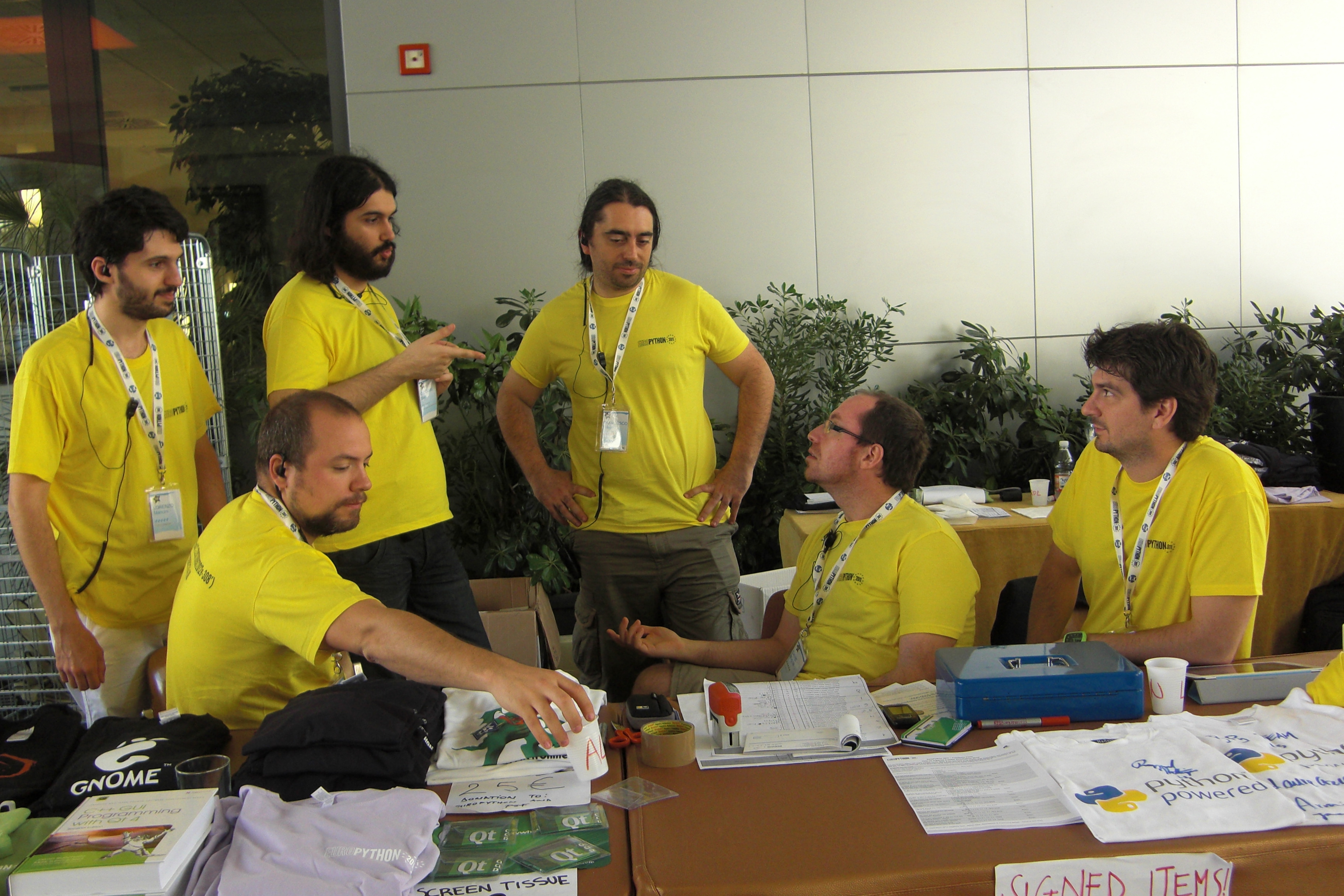 And not to forget the people of Develer among the organizers of Python Italia Association – Thank you Simone, Giovanni, Francesco, Lorenzo, David and all the others for inviting me, feeding me and carrying my boxes in and out of the building.
And not to forget the people of Develer among the organizers of Python Italia Association – Thank you Simone, Giovanni, Francesco, Lorenzo, David and all the others for inviting me, feeding me and carrying my boxes in and out of the building.
What did I learn?
- I was told by Nicholas Tollervey that FluidDB has now been renamed Fluidinfo. Hopefully, Nicholas will write a post for us in the not too
 distant future about the new development of FluidInfo.
distant future about the new development of FluidInfo.
- Talking to several people, I found out that with the update of Python 3x, some of the libraries are lagging behind such as the scientific libraries and Django. I suppose this is keeping the Python community out of mischief and programming madly – sore fingers all around.
- Antonio Cuni and Armin Rigo gave a PyPy talk. I am told that PyPy is one of the most important project in Python. It is allegedly the fastest Python interpreter, and the most compatible and most stable ‘alternative’ one. (That’s a lot of “most”! I am sure you will tell me if you defer.) More information can be found here. PyPy is funded by Eurostars Eureka – a cross -European funding collaboration that targets small firms which produce research.
Interesting topics:
Looking through the program I found lots of interesting topics – not that I know what they mean but the titles appealled to me.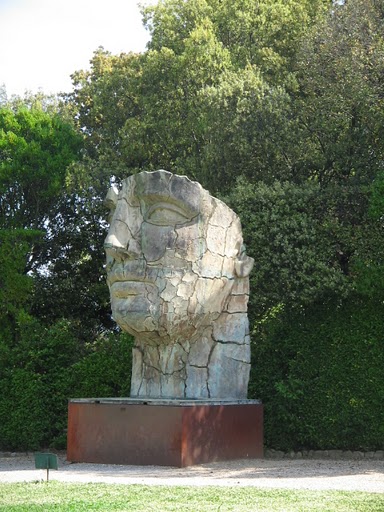
Merengue: The new surprising and refreshing Django based cms
Advanced aspects of the Django ecosystem: haystack, celery & fabric
Data plumbing with Python
Every time you use viri, god kills a sys-admin;)
PyHP and the art of dating girls
Plac: more than just another command-line arguments parser
 Man page of the warrior of light
Man page of the warrior of light
New beauty in Camelot
Snakes on a Cloud: the new rousing OpenStack open-source cloud project
Python and the elephant: the best DB, PostgreSQL, and the best language, Python, work great tog ether!
When reading these titles, I thought of food, circus, science fiction and possibly nasty diseases. I won’t tell you which is which. You can read more about the programme here.
I also like the names of the rooms – spaghetti, lasagne, ravioli, tagliatelle, tiramisu etc. Very easy to remember and likely to give you some appetite which reminds me – the food here is great.
Room for improvement:
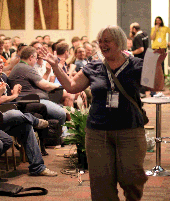 After some discussion with the delegates, I found out that our prize draw forms are not clear enough. Be assured that, should enter the draw, we will send you one email only offering you to opt-in so that you can receive info from us but if you don’t want to, you will never hear from us again. So do feel safe when giving me your details – we will not misuse them, we follow the EU best practice guidelines. So for me it’s back to the drawing board!
After some discussion with the delegates, I found out that our prize draw forms are not clear enough. Be assured that, should enter the draw, we will send you one email only offering you to opt-in so that you can receive info from us but if you don’t want to, you will never hear from us again. So do feel safe when giving me your details – we will not misuse them, we follow the EU best practice guidelines. So for me it’s back to the drawing board!
Talking about prize draw, I won a license for the Komodo IDE. What it is? I don’t have a clue. We have arranged to sell it at an auction for the Python Foundation.


